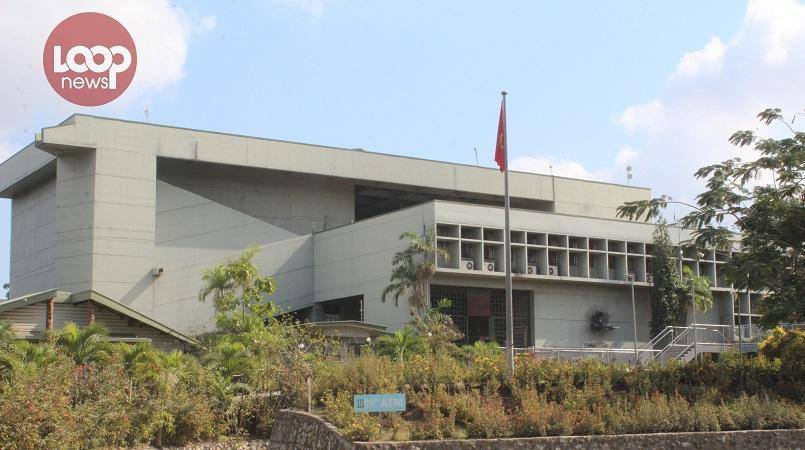
The office of the Attorney General has not responded to a request by Fraud officers from the Royal PNG Constabulary for legal representation for a case in the National Court.
Inspector Joel Simatab, from the National Fraud and Anti-Corruption Directorate, and his Director Chief Superintendent Matthew Damaru, on June 30 last year filed a judicial review challenging the District Court's decision to dismiss the case against Justice Sir Bernard Sakora, who was then facing allegations of judicial corruption.
Being officers of the Royal PNG Constabulary and acting in their capacity, they wrote to the Attorney General seeking approval for legal representation as per section 7 of the Attorney General’s Act.
They have not received any response to that request as yet.
Their case returned for directions in the Waigani National Court today before Justice Leka Nablu.
Justice Nablu told the Solicitor General, Faith Barton, and Sir Bernard's lawyer that the case was filed last year and it should proceed to hear the leave application because it is a matter of public interest.
Otherwise the matter will proceed to summary determination.
Barton told the court that as investigating officers in the case, the appropriate party to instigate the judicial review proceeding would be the Public Prosecutor and alternatively, through the Police Commissioner.
Justice Nablu directed parties to turn up in court on May 9 to move the leave application, the first stage in judicial review cases where the aggrieved parties must demonstrate they have an arguable case for the court to review it.
On June 7, 2016, the Waigani Committal Court dismissed a case against Justice Sir Bernard Sakora on the charge of judicial corruption.
Damaru and Simatab, in their capacity from the National Fraud and Anti-Corruption Directorate, filed a judicial review in the National Court against that decision.
Leave was to be sought in the National Court by the police officers for the court to review the Committal Court’s decision however, that was not done because they had no lawyers to represent them.
Four months after the review was filed, Sir Bernard filed a motion on 8 November 2016, asking the National Court to dismiss that judicial review. That motion was heard in court on March 9 this year before Justice Nablu.
Sir Bernard’s motion asked the court to dismiss the entire judicial review proceeding for want of prosecution because it had taken the police too long to pursue the matter through the leave stage.
He also asked that the case be dismissed, saying the judicial review did not disclose a reasonable cause of action, was an abuse of the court’s process and that the court should refuse leave due to delay in applying for leave by Damaru and Simatab.
On April 4, Justice Nablu refused Sir Bernard’s motion saying it was misconceived because his application failed to plead the correct provision of the National Court rules.
The court accepted submissions by Damaru and Simatab on March 9 that any interlocutory application to dismiss a judicial review case must be made under Order 16 of the National Court Rules and not under Order 4, as submitted by Sir Bernard through his lawyer Loani Henao.
Justice Nablu also said the only party that had the right to be heard on a leave application stage of a judicial review proceeding would be the State.
